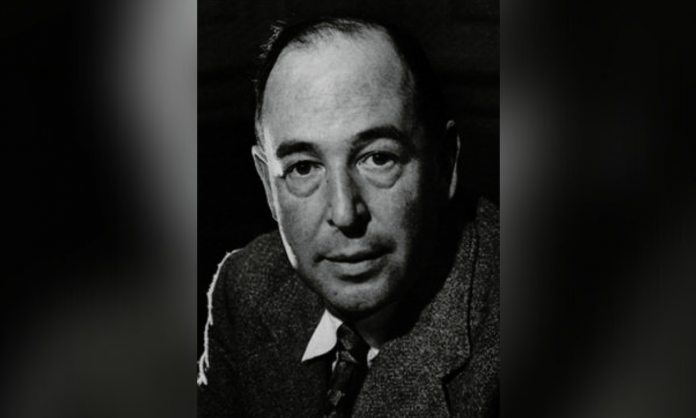Clive Staples Lewis, born on 29 November 1898, in Belfast, Northern Ireland, was an author, essayist and Christian apologist. Lewis is best known for his children’s classic series ‘The Chronicles of Narnia’.
Lewis retained strong roots to Ireland throughout his life and took interest in the Celtic literature and myths. Educated at numerous private tuition and public schools, Lewis’ time in school was not a memory of joy and later in his career he wrote in disparaging times of how schoolboys were mistreated.
In 1917, he volunteered to join the British army in the First World War and took part in trench warfare and during the last few months of the war, Lewis was injured and sent back home. Upon returning to University, he completed his degree and took up a post teaching English at Magdalen College.
C.S.Lewis became an influential apologist for Christianity through publications such as the ‘Screwtape Letters’.
Clive Staples Lewis died on 22 November 1963 from kidney failure, one week before his 65th birthday.
We remember and celebrate C.S Lewis with some of his most famous quotes –
“You are never too old to set another goal or to dream a new dream”
“Since it is so likely that children will meet cruel enemies, let them at least have heard of brave knights and heroic courage”
“Joy is the serious business of heaven”
“We laugh at honor and are shocked to find traitors in our midst”
“Everything is good when it looks to Him and bad when it turns from Him”
“No one ever told me that grief felt so like fear”
“Each day we are becoming a creature of splendid glory or one of unthinkable horror”
“The task of the modern educator is not to cut down jungles but to irrigate deserts”
“The homemaker has the ultimate career. All other careers exist for one purpose only – and that is to support the ultimate career”
“The truth is, of course, that what one regards as interruptions are precisely one’s life”
“The future is something which everyone reaches at the rate of sixty minutes an hour, whatever he does, whoever he is”
“I sometimes wonder if all pleasures are not substitutes for joy”








